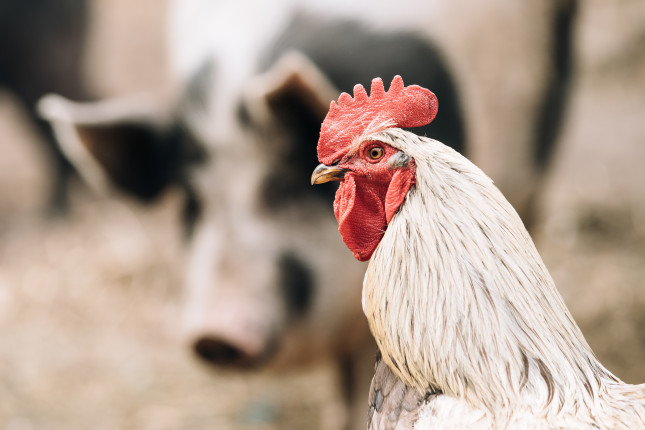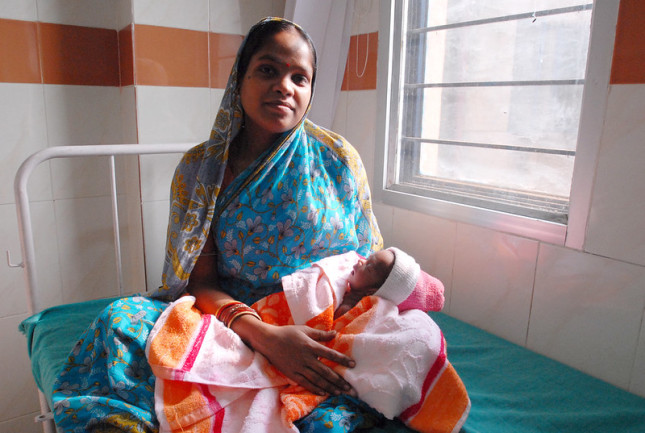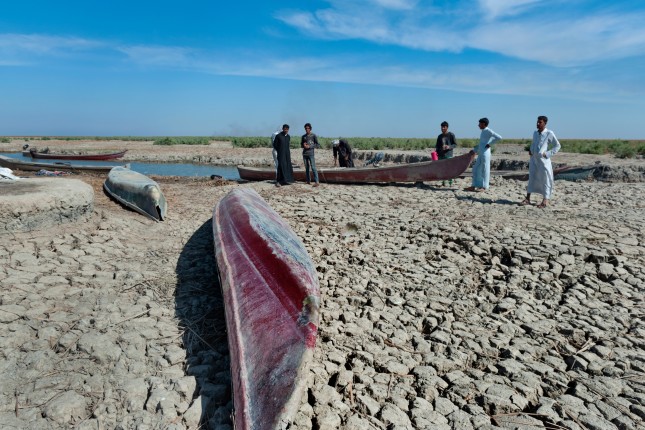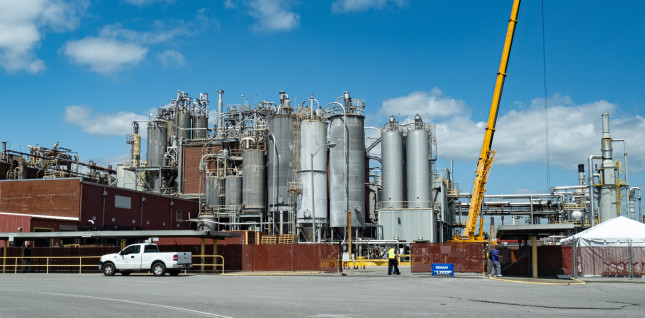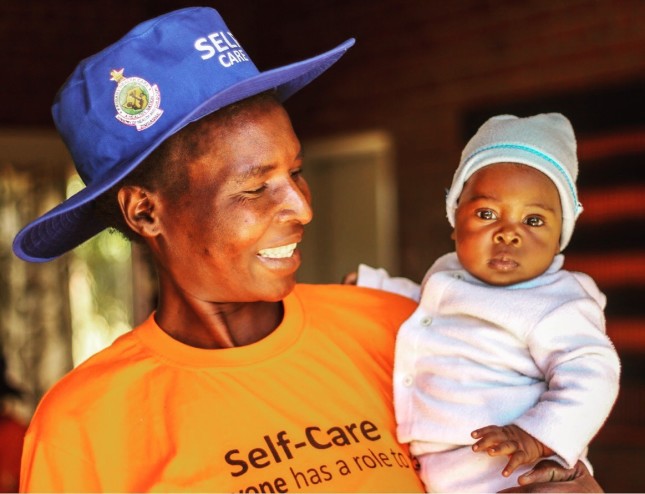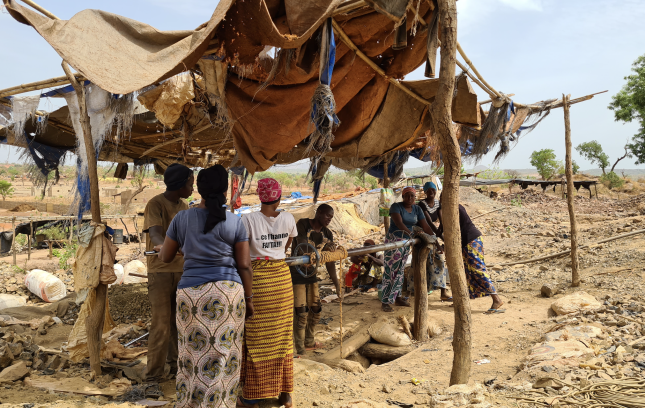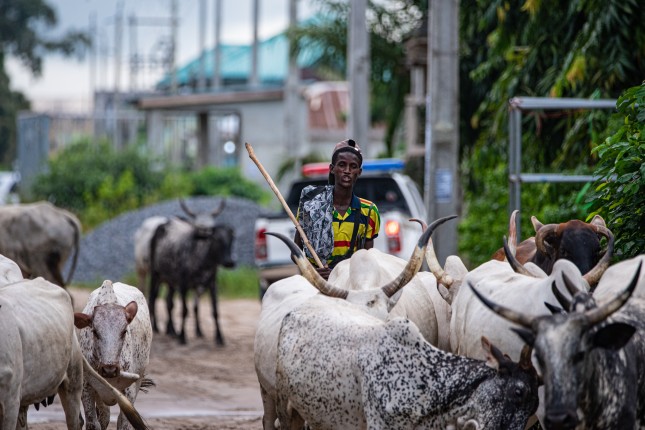-
Gender-Based Violence in Kenya’s Fisheries: Finding Structures and Solutions
›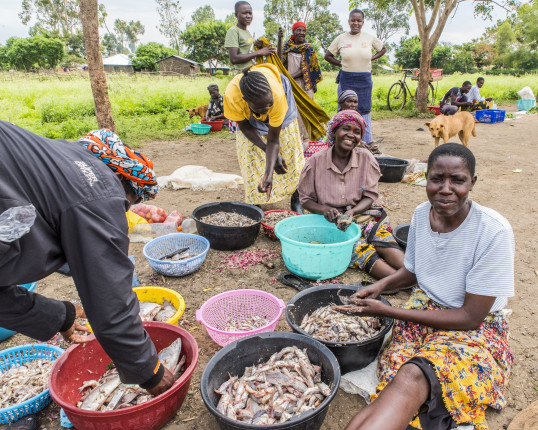
On the edge of beautiful, blue ocean waters in coastal Kenya’s Kilifi County, boats float on the surface of fish landing sites. The fish-eating birds in flight above the boats are a breathtaking sight—and they immediately elicit a sense of tranquility.
Over the past few months, I have traveled to various fish landing sites in Lake Victoria and on Kenya’s coast to continue my research on socioeconomic factors leading to the exclusion of women in the fisheries sector.
-
Greening Eggs and Ham: Animal Feed and GHG Emissions in the United States and China
›“Save your kitchen scraps to feed the hens,” urged a poster for the victory gardens created on the home front in the Second World War. Feeding food scraps to backyard chickens and pigs turned this waste into a delicious source of human food. Pigs were especially prized in this effort as they would eat what most other animals considered inedible.
-
Delivering Dignity: The Importance of Respectful Maternity Care
›
Women who are treated with respect and dignity during childbirth are more likely to have positive birth experiences, feel empowered to make informed decisions about their care, and have better health outcomes for themselves and their newborns.
-
Tackling Challenges in the MENA Region: Climate, Food Security, and Migration
›
At a recent Brookings Institution event titled Climate Change, Food Insecurity, and Migration in the Middle East, Ferid Belhaj, Vice President for the Middle East and North Africa (MENA) at the World Bank, observed that the MENA region relies heavily on grain exported from both Ukraine and Russia. When the 2022 invasion reduced grain exports to a trickle, the entire region suffered heavily.
-
A U.S. Nonprofit Aims to Reduce Emissions of a Super Climate Pollutant from Chemical Plants in China
›A new initiative by the Climate Action Reserve, a nonprofit organization based in Los Angeles, could play a significant role in curbing emissions of a potent climate pollutant from chemical plants in China while filling a gap in international climate agreements and China’s environmental regulations.
-
Me Care, We Care: How Self-Care Strengthens Maternal and Newborn Health
›
A recent report on global maternal mortality by the World Health Organization (WHO) reveals a hard truth: the world has been ignoring the needs of pregnant women. While there have been substantial reductions in maternal death rates since 2000, progress has stalled or been reversed in some countries after 2015, even before COVID-19 exacerbated the situation. Nations affected by humanitarian emergencies, conflicts, and other crises fared the worst.
-
Building Peace by Formalizing Gold Mining in the Central Sahel
›The Central Sahel is increasingly deemed the new epicenter of terrorism, accounting for 35 percent of global terrorism deaths in 2021. Yet as the situation in the region continues to deteriorate, artisanal and small-scale gold mining (ASGM) both persists and proliferates. For instance, in Mali, where much of the region’s security crisis originates, this conundrum is laid bare.
-
Farmers-Herders Conflicts in Nigeria: A Role for FBOs?
›
Nigeria is home to many violent conflicts, one of which is the farmers-herders conflict that has posed severe security challenges in the country. The human toll of the violence has been immense, claiming more lives than the Boko Haram insurgency. Hundreds of thousands of people have been killed or displaced. Nigeria has also experienced increased ethnic, regional, and religious polarization, and this crisis has undermined national stability and unity.
 A Publication of the Stimson Center.
A Publication of the Stimson Center.

